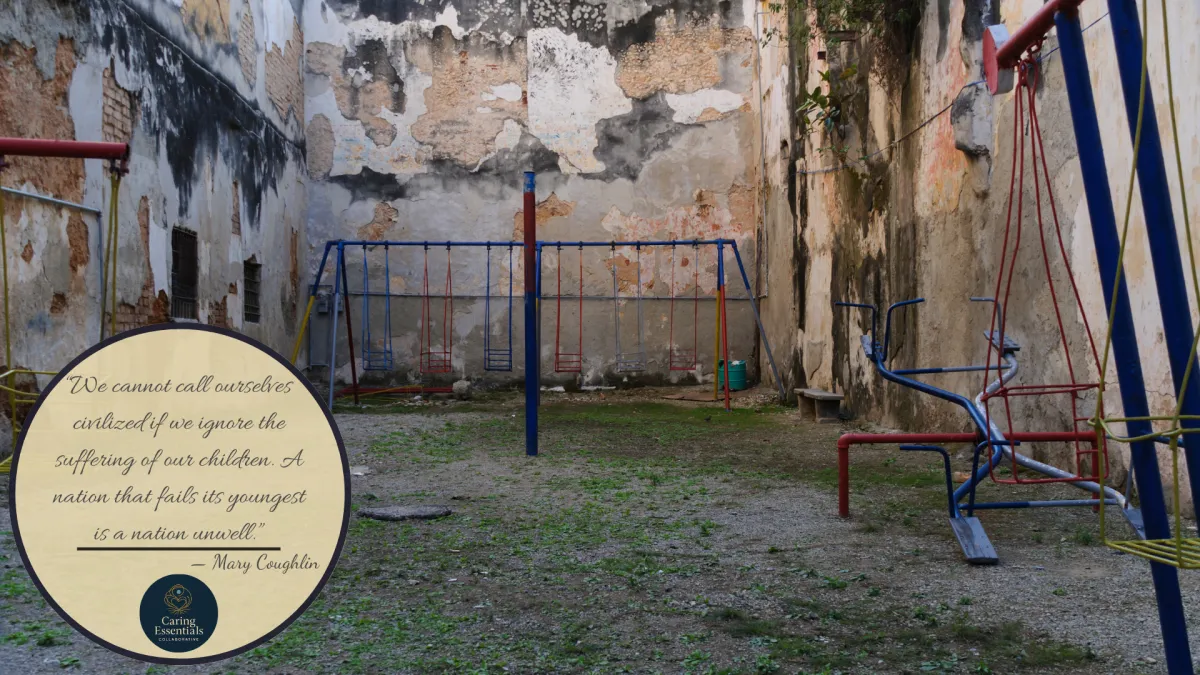
The Children Are Not Okay: When a Nation Chooses Neglect Over Nurture
“We cannot call ourselves civilized if we ignore the suffering of our children. A nation that fails its youngest is a nation unwell.” - Mary Coughlin
The Children Are Not Okay: When a Nation Chooses Neglect Over Nurture
A Trauma-Informed Lens on National Priorities
We like to tell ourselves we’re a country that loves children.
But love isn’t measured in slogans or photo ops. Love is measured in policy. In priorities. In protection. And by that standard—by the only one that matters—we are failing.
A new editorial in JAMA Pediatrics brings this failure into sharp, unbearable focus: American children are dying and suffering at rates far worse than their peers around the world. And not just from one or two causes. This is a systemic unraveling—spanning sudden infant deaths, prematurity, mental illness, firearm injuries, and chronic diseases like obesity and depression.
Between 2007 and 2022, 316,000 young lives were lost—not to war or famine, but to preventable neglect in the richest nation on earth. [Forrest et al., 2025]
What changed? It’s not just bad luck or unfortunate trends. It’s a matter of design. Or rather, of decisions.
The Deaths We Choose
The leading causes of death among US children—sudden unexpected infant death (SUID), prematurity, and firearms—are not mysterious. We know how to reduce them. Peer nations have. But we choose not to follow suit.
Instead, we cut funding for maternal and child health programs. We allow firearms to flood communities, and we resist safe storage laws. We defund sleep safety campaigns. And we dismantle the very research infrastructure that could show us a better way. [Wolf et al., 2025]
This isn’t just a policy crisis. It’s a moral one.
A Trauma-Informed Lens on National Priorities
From a trauma-informed perspective, the U.S. is inflicting chronic, compounding trauma on an entire generation—particularly children of color, children in poverty, and children navigating systems of violence and disconnection.
We are eroding the very buffers children need to survive and thrive: stable caregivers, safe environments, responsive systems, and equitable access to care. Instead, we are witnessing:
Fragmented and inaccessible healthcare
Nearly 5% of US children remain uninsured, with many more underinsured. Those on public insurance often struggle to access basic or specialist care. [Wolf et al., 2025]Skyrocketing mental health issues
One in two children has a chronic condition. Depression, anxiety, obesity, and loneliness are surging—often linked to social media, environmental toxins, and systemic disconnection.Racial disparities that mirror structural racism
The very conditions that kill—SUID, prematurity, firearms—are three to four times more likely to affect Black youth. [Wolf et al., 2024]
This is not a parenting problem. This is a policy problem. A culture problem. A values problem.
A Crisis of Will, Not Knowledge
We know what children need:
Paid parental leave. Livable wages. Safe housing. Access to nature. Clean air. Safe sleep spaces. Protection from guns. Investment in community care, not carceral systems.
What’s missing is not science. It’s political will.
The current administration’s so-called Make America Healthy Again initiative is little more than a smoke screen—gutting the very agencies designed to protect children, while fueling vaccine hesitancy and dismantling research into racial health disparities.
This is not health. This is harm. Codified.
What We Must Do
We must refuse to normalize this. We must refuse to stay silent.
We must demand:
Protection for public health programs, not their elimination.
Firearm safety policies rooted in evidence, not fear.
Investment in maternal and child health—not budget cuts cloaked as streamlining.
Equitable care for Black and brown children, not the erasure of data and disparity research.
And So I Ask...
Is this the America we choose to be?
Is this the care our children deserve?
Or can we rise—finally—to reimagine a nation worthy of their trust?
“A nation that cuts corners on children’s wellbeing is not conserving anything—it’s collapsing from within.” - Mary Coughlin
With love and urgency,
Mary
PS: If you’re ready to be part of the change, explore becoming a Trauma-Informed Professional through our TIP 2.0 program—where science, soul, and skills meet to protect what matters most: humanity.
